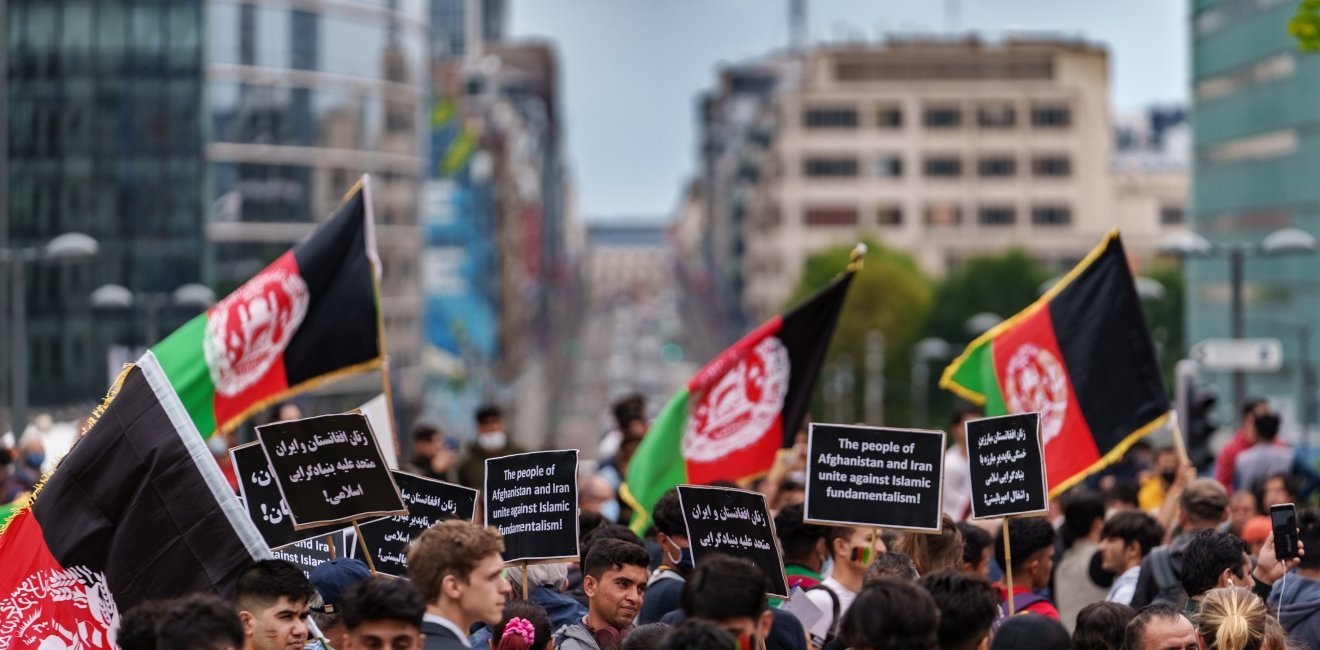British parliamentarians were defiant in their criticism of Prime Minister Boris Johnson and his government as they interrupted their holidays on August 18 to debate British policy toward Afghanistan. On both sides of the aisle, they put the blame for the Taliban takeover on the United States. Many expressed humiliation and helplessness in the face of defeat, fear for the prospects of women and contempt for U.S. President Biden. They accused him of “throwing us and everybody else to the fire.” The most damning condemnation came from a MP who charged that pulling out U.S. troops with such haste, demonstrated that “decadence and hubris have finally brought down the American Empire.”[1]
It is uncomfortable for us to hear from our closest ally that many consider Joe Biden to hold a ruthless disregard for the so-called special relationship and to see the triumph of values so alien to the liberal democracy that both Britons and Americans cherish. The Telegraph newspaper called Biden’s handling of Afghanistan withdrawal “catastrophic” and “shameful.” But beyond wailing over American incompetence, what explanations did our British friends have for the Taliban’s swift capture of Kabul?
Dependence on the U.S. military and recognition that this was a U.S. war provided an easy justification. The truth is that the Afghan operation has always been U.S.-dominated. British military presence came to a close in 2014. Since then, from a logistical perspective there never existed a meaningful prospect of filling the gaps left by the U.S. departure. Whether alone or with European allies, defense cuts over the last 8 years prevented any alternative to U.S. leadership.
However, UK cooperation with West European allies has continued, despite Britain’s departure from the European Union. Alongside the French, there is an active UK presence in the Western Sahel, where ISIS-related groups recently killed 47 police officers. Close cooperation with European capitals also exists on migration, Belarus and Eastern Europe, although Johnson avoids talking about security cooperation with European nations as part of his anti-EU public posture. The reality is closer cooperation with the French, Germans and the Baltic states on security matters.
Nevertheless, there is little prospect of voters in Europe agreeing to support an indefinite commitment in Afghanistan. Surveys by the British Foreign Policy Group find that Britons believe UK forces should only deployed in three situations: direct attack on British soil; direct attack on British assets abroad; and a large scale humanitarian crisis.[2] The possibility of that crisis in Afghanistan is real, but the greater one is the inevitable flow of refugees into Europe and the encouragement to al-Qaeda and its allies to resume terrorist attacks in Western Europe.
The loudest voice came from Conservative MP Tugendhat, one of Parliament’s most serious thinkers about foreign and defense policy. He reminded Britons that they had achieved their objective in Sierra Leone and, together with NATO, had pushed Serbian forces out of Kosovo. British forces could succeed. Now, he urged the government to consider air-support and special forces operations should Islamic fanatics re-establish themselves and return to attacks in Western Europe. The swift withdrawal of U.S. forces had taught Britons the limits of western power and the need to work more closely with Europeans to combat terrorism.
The current British government is not known for strategic thinking. Instead, Boris Johnson’s government is carefully pragmatic, approaching diplomacy issue by issue. In the short term, he has agreed to recognize the contribution of Afghan interpreters and those who worked alongside British troops by increasing the number of refugees by 20,000. He may also agree to reinstate the British aid budget, previously cut from 0.9 percent to 0.7 percent to pay for domestic pandemic relief. Third, he has called for a meeting of the G7, but its outcome could prove illusory if members merely talk about support for the Afghan people, but do little. This commitment may go beyond those who fought alongside International Security Assistance Force (ISAF) to include professional women and NGO leaders. The British may also be willing to support the destabilization of the Taliban regime through aid to those tribal leaders who ally with pro-western efforts. But that project will occur quietly beyond the headlines of national media.
[1] Daily Telegraph, 19 August 2021.
[2] British Foreign Policy Group website
Author


Global Europe Program
The Global Europe Program is focused on Europe’s capabilities, and how it engages on critical global issues. We investigate European approaches to critical global issues. We examine Europe’s relations with Russia and Eurasia, China and the Indo-Pacific, the Middle East and Africa. Our initiatives include “Ukraine in Europe”—an examination of what it will take to make Ukraine’s European future a reality. But we also examine the role of NATO, the European Union and the OSCE, Europe’s energy security, transatlantic trade disputes, and challenges to democracy. The Global Europe Program’s staff, scholars-in-residence, and Global Fellows participate in seminars, policy study groups, and international conferences to provide analytical recommendations to policy makers and the media. Read more

Explore More
Browse Insights & Analysis
Greenland’s New Governing Coalition Signals Consensus

Myanmar’s Junta and the 2026 Elections: A Fig Leaf for Legitimacy?


